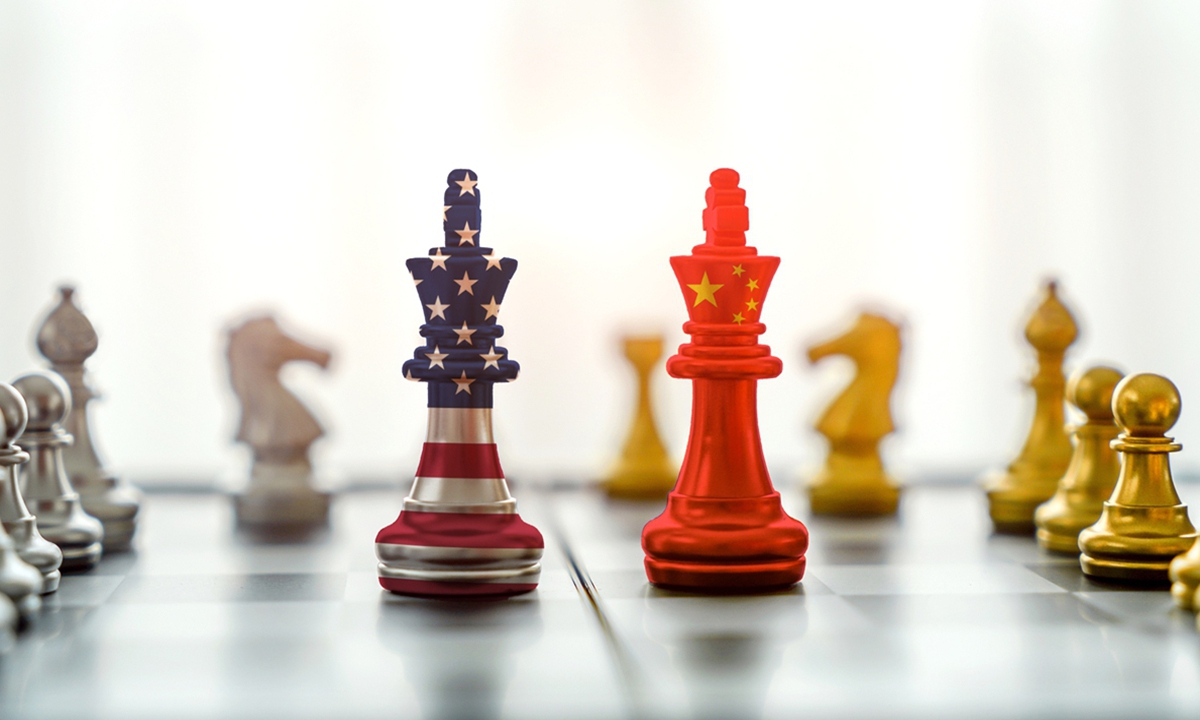US' new China initiative reflects chaos, growing anxiety over declining power: experts

China US
Renewed efforts by US Senate Democrats to counter China over technology and Taiwan question have reflected the growing anxiety of the US over its declining global influence, experts said on Thursday. They noted that the potential visits by Secretary of State Antony Blinken and climate envoy John Kerry to China will have little effect on improving bilateral ties if the US government continues on the wrong path.
US Senate Democrats have launched their latest attempt to "stave off competition from China," including a bill that aims to limit the flow of technology to China, deter China from initiating a conflict with the island of Taiwan and tighten rules to block US capital from going to Chinese firms, Reuters reported on Wednesday.
Senate Democratic leader Chuck Schumer announced that he will begin crafting the major legislative push which has been dubbed "China Competition 2.0".
It is an act that broadens the CHIPS and Science Act of 2022, which sought to boost Washington's competition with Beijing in semiconductors and other technology.
It does reflect uneasiness from the US, especially on high techs such as artificial intelligence and quantum computing, where they have some advantage but which may not be as great as they think, Lü Xiang, a research fellow at the Chinese Academy of Social Sciences, told the Global Times on Thursday.
"The White House is aware of the damage being done to the US itself brought by current tensions with Beijing and they are worried that China may push back if they push it too hard. They know that Washington's strength has not reached the point where Beijing cannot fight back, and that's why they have sent out senior officials in recent days to 'test the waters'," Lü said.
From US Treasury Secretary Janet Yellen to National Security Advisor Jake Sullivan and most recently the US Ambassador to China Nicholas Burns, Washington has sent out signals that it is ready to hold high-level talks with Beijing and wants to forge better communication channels between the two sides, and that the US is not looking to "decouple" its economy from China's.
US climate envoy John Kerry announced on Wednesday that he would visit China in the near future for talks on averting a global climate change crisis. "This has to be cooperative, notwithstanding other differences that do exist," Kerry told media.
The visit, however, was not confirmed by the Chinese Foreign Ministry the following day, but only garnered a response that China's stance on ties with the US remains unchanged, according to ministry spokesperson Mao Ning on Thursday.
The visit by Kerry would have little effect on improving bilateral ties if the US keeps saying one thing but doing another, Lü said. "Take climate change cooperation. How can China and the US work together when the US constantly tries to suppress China's clean energy development by making up lies about China's Xinjiang?"
US Secretary of State Antony Blinken also said on Wednesday that he hopes to reschedule his visit to China "for some time this year." The trip, also not confirmed officially by China, was postponed earlier after the US shot down a Chinese airship for civilian use in February.
The mixed signals have reflected the chaotic China policy of the US, observers said. But one thing is clear - both Republicans and Democrats are increasingly anxious about the loss of US dominance on the world stage. Instead of trying to improve its competitiveness, however, the US is trying to sustain its hegemony by suppressing China, with no explicit intention of giving up its wrongdoings despite "warmer tones."
